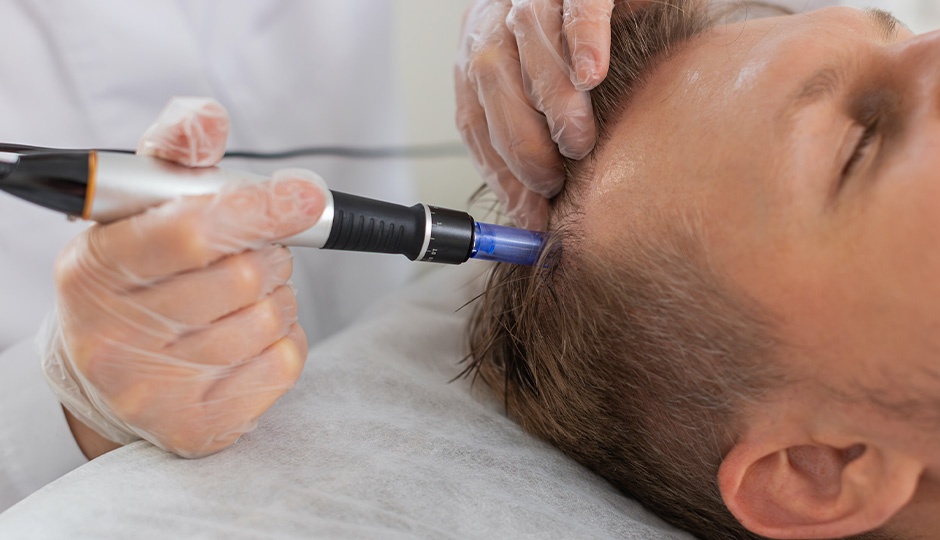Many factors can contribute to hair loss. For many people, it can be hard to know what the underlying cause is. Yet, if you take a closer look at your lifestyle choices, diet, and overall health, there is nearly always an indication that something may be causing hair loss. One potential cause could be smoking tobacco. If you are a smoker, there are a few things you should know about its impact on hair loss and what you can do about it.
How Does Smoking Impact Hair Loss?
Smoking tobacco can, in some cases, impact the hair follicle’s ability to produce hair. These are the small shafts located throughout the body in which hair grows. If damage occurs to those shafts, it becomes impossible for hair to grow properly through them, and in some cases, causes hair to fall out early during the hair growth cycle. This can lead to a significant amount of hair loss for some people.
Studies indicate that those who are smokers are more likely to have early onset hair loss, including early onset androgenetic alopecia in men and women. More so, a large percentage of smokers have some hair loss that is at a higher rate than others. However, not everyone’s hair loss is noticeable enough to consider it a problem.
Researchers continue to work to understand why this happens. However, it is believed that nicotine and the other chemicals found in tobacco products is to blame for hair loss, especially if a person is consuming a lot of tobacco or has done so for a long time. In addition to this, smoking also causes oxidative stress.
Oxidative Stress and Hair Loss
Oxidative stress occurs when the body reacts to the chemicals or stressors in it. This leads to the production of free radicals, which are molecules that react to other molecules in the body and, in some cases, can damage the DNA there. When there is a large amount of free radical activity present in the body, this can lead to oxidative stress.
Smoking is the biggest cause of this, but it may also happen from radiation exposure, pollution exposure, and UV lights. A high level of oxidative stress may lead to damage of the DNA in the cells located in the hair follicles in the body. This can lead to impaired growth of hair in those areas, and hair loss may be a sign of this.
Lack of Circulation and Hair Loss
Another potential cause for hair loss in those who smoke is the reduction of blood flow throughout the body and especially near hair follicles.
Nicotine use constricts the blood vessels. As that happens, less oxygen-rich blood can flow through the body and especially to areas like the hair follicles. Without that much-needed oxygen, the cells cannot perform as they should. That leads to hair loss when the hair follicles are unable to support the growth of hair.
Without proper flow of blood through the area, the elimination of waste is difficult from cells. In addition, nutrients cannot access the blood cells enough, leading to hair damage or hair loss.
What Else Can Cause Hair Loss from Smoking?
There are many factors that relate to hair loss when it comes to smoking. That includes the increase of inflammation in the area, which is brought on by the high amount of toxins in the body, as well as changing enzyme levels in the tissues that monitor the hair growth cycle. In addition to this, there is often scarring of the hair follicles that occurs as a result of the high levels of toxins present.
What Can Be Done?
In some situations, a person may see a reduction in the amount of hair loss they have when they stop smoking, and their body heals. However, if there is damage to the hair follicles, including scarring, that may be difficult to repair. It may lead to permanent hair loss.
Many people can see improvement over time. The use of treatments to stimulate hair growth may help those who have both stopped using nicotine or other smoking products and improve their nutrient intake to encourage better circulation in the area.
To learn more, contact the team at Unique Hair Concepts for a complimentary, private consultation.






